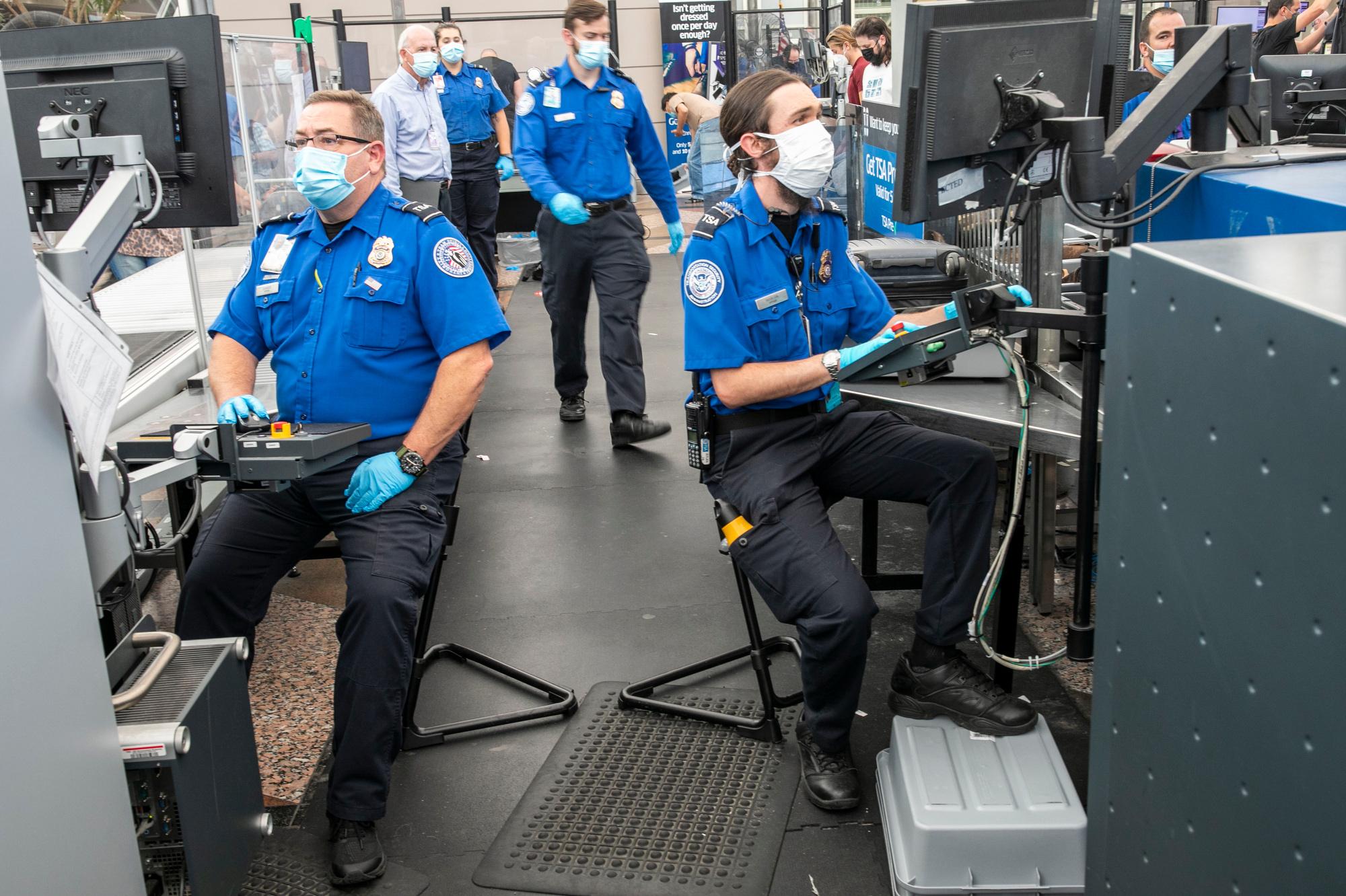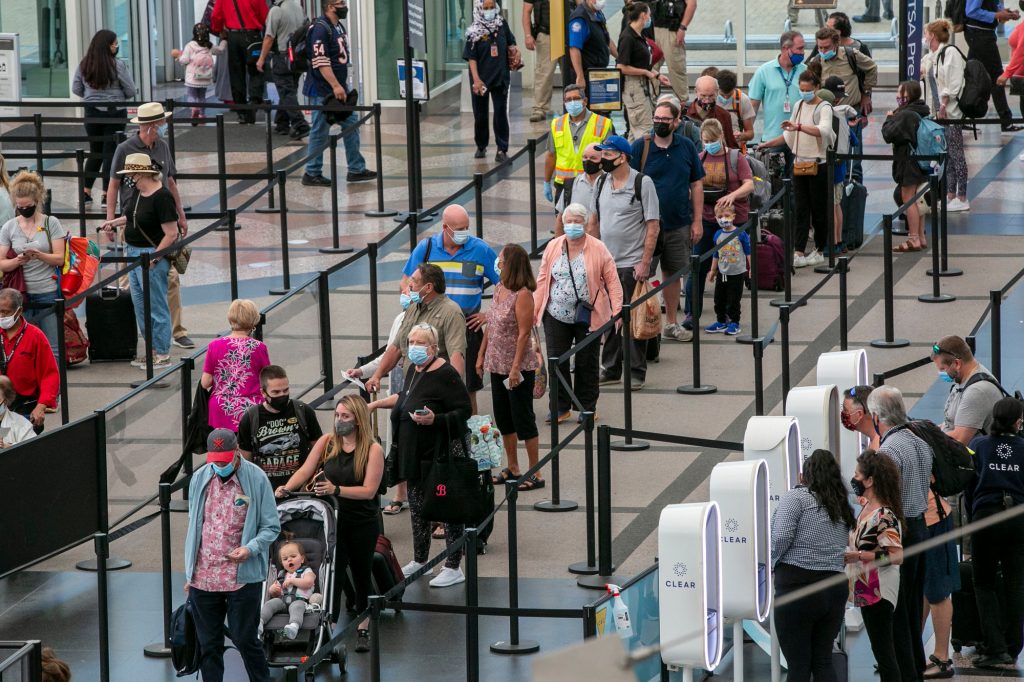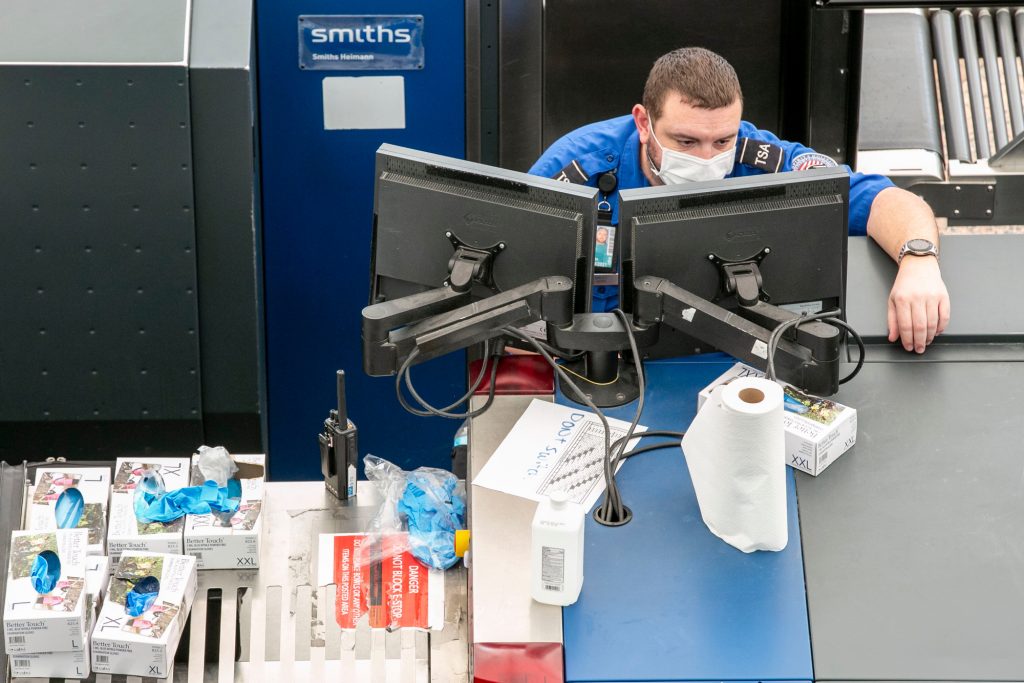
If you had to fly during the pandemic, the silver lining of having a half-full airport to breeze through probably won’t last much longer. Denver International Airport officials predict summer travel in Colorado will likely hit 2019 levels as coronavirus restrictions continue to loosen.
Daily traveler counts across the nation show that movement over the past several days is more than triple what it was last year. DEN officials said that number, called “throughput,” will only increase.
“Travel volumes at DEN have rapidly increased over the past several months and we anticipate this trend will continue throughout the summer,” said Colorado Transportation Security Administration director Larry Nau.
DEN officials said the busiest time periods at their security checkpoints are between 5 a.m. and 11 a.m., noon and 2 p.m., and 9 p.m. and midnight. Those peaks are driven by an increasing number of flights departing from DEN, which has caused the return of long wait times at checkpoints.

Hopefully, a faster TSA security checkpoint
After facing a slow year, the TSA is working to fill gaps in their staffing and workflow to prepare for the oncoming horde of summer travelers.
A major change will be how bag screenings work. By using computed tomography technology, much like what hospitals use, passengers won’t have to take electronics and food out of their carry-on baggage.
“This additional capability is really helpful to our officers because by getting that better view of the contents of the carry-on bag, it reduces the number of bag checks,” said TSA spokeswoman Lorie Dankers. “We're coming out of a pandemic. But as a traveler, you don't want people in your bag or officers don't want to be in your bag.”
This doesn’t mean the TSA’s prohibited items list has changed. Weapons, firearms and flammables are still not allowed. And don’t even think about bringing that large jar of peanut butter. It will only end in heartbreak.
Passengers also do not have to provide a boarding pass to TSA agents. Instead, they’ll place their photo ID in a scanner, which will show biographical and flight information to the agent.
Both of these new technologies have been rolled out over the last few months at various airports across the country. Dankers said they help reduce potential touch points between passengers and security officers.


COVID protocols still in place
Aside from the uptick in activity at DEN, COVID-19 restrictions are still largely in place.
The federal requirement to wear a mask at airports, even for the fully vaccinated, has been extended until September 13. Failure to comply could result in being denied entry to the airport or airplane, or civil penalties.
Security officers will also be required to wear masks and gloves at screening checkpoints. Shared and commonly touched surfaces, like screening bins, will be regularly disinfected.
The Centers for Disease Control requires travelers going outside the United States to provide proof of a negative COVID-19 test result before boarding a flight to return home, regardless of vaccination status.
Editor's note: This article and the captions of featured photos have been updated to correct the name of the Travel Security Administration.









